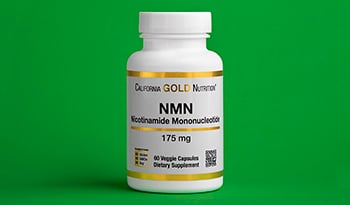The Best Anti-Inflammatory Foods and Supplements + Foods to Avoid

You’re having trouble sleeping and can’t seem to shake the persistent fatigue. Your body feels achy, and your joints are stiff. Although you haven’t changed your diet or exercise routine, you’re gaining weight. While it may be hard to figure out what’s happening with your body, your health issues may be due to chronic inflammation.
What’s the solution? It’s not taking sleeping pills for the insomnia or ibuprofen for the pain. And starting another fad weight-loss routine probably won’t have as big an impact as you hope.
While these short-term fixes may offer temporary relief, they won’t address the root of your health issue, reverse the problem, or protect your body from more damage. The true solution starts at the grocery store, not the drugstore or diet center. Let food be your medicine, and go on an anti-inflammatory diet.
Hippocrates, the father of modern medicine and advocate of using food to heal your body, was right. A powerful relationship exists between diet and health, particularly around food’s impact on inflammation. Today, 2,400 years after Hippocrates, an increasing body of research shows that a healthy, whole food plant-based diet can reverse chronic inflammation more effectively than pharmaceuticals without any adverse side effects. Conversely, a diet high in saturated fat, sugar, artificial ingredients, and junk foods can increase inflammation.
Unlike popping pain medications with negative side effects like indigestion, headaches, and dizziness, eating an anti-inflammatory diet only has positive benefits. This eating pattern, often called the DASH or Mediterranean diet, can help you lose or maintain weight, improve your mood, and boost gut health. Plus, you’ll reduce your risk of numerous diseases associated with chronic inflammation, including diabetes, heart disease, and some chronic disease.
Going through menopause? Eating more anti-inflammatory foods can help balance your hormones and reduce hot flashes, brain fog, and menopausal weight gain.
What Is Inflammation?
Inflammation is one of the primary ways your immune system defends and protects your body and initiates the healing process. It starts when white blood cells recognize harmful or foreign stimuli or respond to an injury. These white blood cells act like sentries standing guard, helping prevent the passage of unauthorized invaders.
When the white blood cells detect something is wrong, they alert other cells via chemical messengers so other cells can prevent infection and heal damaged tissue. That response increases blood flow to the impacted area, increasing inflammation and causing pain, redness, warmth, or swelling.
There are two types of inflammation, acute and chronic.
Acute Inflammation
Acute inflammation is fast and short, lasting only hours or days. Acute inflammation can be triggered by physical trauma (like when you cut your finger or break a bone), pathogens such as viruses, or exposure to toxins.
When you catch a cold or the flu, your body responds with acute inflammation. White blood cells detect the virus and signal additional white blood cells to fight the infection via inflammation. The response triggers a cascade of events that cause symptoms associated with being sick, like having a sore throat and cough.
Chronic Inflammation
In contrast, chronic inflammation develops slowly and is long-term, lasting from months to years. Unlike acute inflammation, chronic inflammation continues after the initial trigger disappears. How long it lasts depends on what caused the initial inflammation and how well the body can heal itself.
Chronic inflammation is associated with chronic pain and numerous diseases, including diabetes, arthritis, allergies, lupus, heart disease, and chronic obstructive pulmonary disease (COPD). According to the National Institute of Health, “Chronic inflammatory diseases are the leading cause of death in the world.”
Globally three out of five people die from chronic inflammatory diseases—and the numbers are increasing. The Rand Corporation estimates that almost 60% of Americans have at least one chronic inflammation-related condition, and 12% have over five.
Numerous factors can increase your risk of chronic inflammation. These include age, smoking, obesity, stress, inactivity, poor sleep, low levels of sex hormones like estrogen and testosterone, and diet.
Diagnosing Chronic Inflammation
Unlike testing for conditions like iron deficiency, prediabetes, or high cholesterol, there are no definitive tests for chronic inflammation. However, these two inexpensive tests can provide information about the overall extent of inflammation in the body:
- C-reactive protein (CRP): Made by the liver, CRP increases with inflammation (acute or chronic) or infection.
- Fibrinogen: Also made in the liver, fibrinogen increases with inflammation and can help identify chronic inflammation.
Usually, these tests are conducted after another medical condition has first been diagnosed.
Eating the Anti-inflammatory Way
Whether you have a specific disease associated with inflammation or not, there is no downside to eating an anti-inflammatory diet. Anti-inflammatory foods are nutritious and delicious. Consuming more of them is one of the most effective ways to reverse chronic disease and increase your life and health span.
The good news is that you can make changes over time. Start where you are and gradually increase the number of anti-inflammatory foods you eat and decrease the pro-inflammatory foods. Here’s what to eat and what to avoid.
Foods That Increase Inflammation
Foods that increase inflammation lurk in highly processed and junk foods. They include added sugars, refined carbohydrates, fried foods, nitrates and nitrites, artificial ingredients, omega-6 fatty acids, and saturated and trans fats. You can determine if a packaged food contains pro-inflammatory foods by reading the food label. Here’s a tip—if you can’t pronounce an ingredient and have no idea what it is, it’s probably artificial.
Added Sugar
Sugar contributes to inflammation by boosting blood sugar levels, which increases insulin and other pro-inflammatory chemicals. While the average American consumes 77 grams of sugar daily, the America Heart Association recommends that men consume under 36 grams and women under 25 grams daily.
Locating added sugars can be tricky because added sugars go by many names, including corn syrup, high-fructose corn syrup, sucrose, and dextrose. Added sugars also come from honey, maple syrup, coconut sugar, molasses, and concentrated fruit juice. Reading the Nutrition Facts Label, you can figure out exactly how many grams of added sugar a packaged food contains.
Artificial Sweeteners
While it’s tempting, do not replace regular sugar with artificial sweeteners such as sucralose or aspartame. Research has associated some artificial sweeteners with a higher risk of both cardiovascular problems and stroke. While experts aren’t exactly sure why artificial sweeteners may be bad for heart health, some researchers hypothesize that artificial sweeteners may trigger inflammation and alter normal metabolism, the gut microbiome, and blood vessels.
Fortunately, there are several natural, low-calorie sweeteners that are healthy and don’t increase inflammation. These include erythritol, xylitol, stevia, and monk fruit. Studies have shown that monk fruit contains antioxidants that may reduce inflammation.
Artificial Colors, Flavors, and Preservatives
You’ll also want to eat fewer foods containing artificial colors, flavors, and preservatives. Why? Your body may view these artificial substances as foreign invaders and trigger an immune response resulting in inflammation.
Red and Processed Meat
Cutting back on red meat and processed meats like hot dogs, bacon, and luncheon meats can also help reduce inflammation.
Trans, Saturated, and Omega-6 Fats
Examine the types of fats you are using. The worst fats for inflammation are trans fats. Fortunately, as of 2020, they have been banned by the FDA, but you may find small amounts in highly processed foods. Read labels and avoid products that contain partially hydrogenated oils.
Reduce saturated fats and oils high in omega-6 fats, like corn and soybean oil. Saturated fats tend to be solid at room temperature and are generally found in foods of animal origin like marbled red meat, cheese, and butter.
6 Foods That Reduce Inflammation
Fortunately, there are many great-tasting foods that you can substitute for the pro-inflammatory fare.
1. Fruits and Vegetables
Start by challenging yourself to “eat the rainbow” and add more fruits and veggies to your plate. Begin your day with a protein-packed (look for vegan protein powders) anti-inflammatory smoothie that contains blueberries and fresh greens or kale powder. For lunch and dinner, fill at least half your plate with healthy veggies like spinach, broccoli, kale, cauliflower, and cabbage. Have fruit—especially berries and cherries, which are packed with anti-inflammatory phytochemicals—for snacks and dessert.
2. Whole Grains
Swap refined white bread, regular pasta, and white rice for whole wheat bread, bean-based or whole wheat pasta, and brown rice or quinoa.
3. Healthy Proteins
Instead of red meat and luncheon meats, try fish or beans. Good seafood choices include salmon, which is high in inflammation-fighting omega-3 fatty acids, sardines, tuna, mackerel, and anchovies. There’s no need to buy fresh fish. Stock up on your favorite canned varieties and use them for sandwiches and salads.
Beans like lentils, edamame, chickpeas, mung beans, navy beans, black beans, and kidney beans are great protein choices. These legumes are also packed with fiber, which offers a host of benefits, from supporting weight loss to lowering cholesterol and blood sugar. Have bean-based soups like minestrone for a quick lunch or dinner, or add canned beans to soups, stews, and salads.
4. Anti-inflammatory Snacks
Looking for an anti-inflammatory alternative to chips or pretzels? Have chickpea or broad bean snacks, a small handful of nuts, or an ounce of dark chocolate that contains at least 70% or higher cocoa solids.
5. Monounsaturated Fats
Use oils high in monosaturated fats, such as olive oil, avocado oil, and flaxseed oil. Olive oil is versatile in the kitchen, tastes great, and studies show it can reduce inflammation, improve the gut microbiome, and lower the risk of cardiovascular disease.
6. Green Tea
Instead of having a regular or diet soda, drink green. A large body of research has shown that green tea and a compound in green tea called EGCG have a wide array of anti-inflammatory effects and combat many diseases, including diabetes. Green tea has no severe negative side effects when consumed in moderation. However, avoid drinking too much, which can cause liver damage or jitters from excess caffeine.
Supplements to Reduce Inflammation
Several supplements may help reduce inflammation and your risk of chronic health problems, especially in conjunction with eating an anti-inflammatory diet. Top choices include curcumin, omega-3 fatty acids, ginger, garlic, vitamins C and D, and green tea extract. Talk with your physician before taking new supplements, especially if you are taking medications or have specific medical conditions.
Curcumin
Found in the spice turmeric and used in Indian cuisine, curcumin offers numerous health benefits due mainly to its antioxidant and anti-inflammatory properties. Research suggests it may help reduce soreness after exercise and help manage inflammatory conditions, including arthritis, hyperlipidemia, and metabolic syndrome. Plus, curcumin is generally considered safe yet effective when used at the appropriate dose. You can also increase your intake of curcumin by cooking with turmeric.
Garlic and Ginger
Like turmeric, garlic and ginger can both be used in cooking or taken as a supplement to help reduce inflammation. A study of people with type 2 diabetes found that those who took 1,600 milligrams of ginger daily for 12 weeks had significantly reduced inflammatory markers, fasting glucose, HbA1c (average blood sugar over three months), insulin, triglycerides, and total cholesterol compared to those who took a placebo. A meta-analysis of 17 randomized controlled trials found that garlic supplementation significantly reduced levels of circulating CRP, an inflammatory marker.
Vitamins C and D
Research has also shown that vitamin C and vitamin D supplementation may reduce inflammation. A randomized controlled trial of 64 people with obesity and hypertension, and/or diabetes who also had high levels of inflammatory markers found that taking 500 milligrams of vitamin C twice daily for eight weeks significantly reduced inflammatory markers.
Population studies have associated low blood levels of vitamin D with inflammation, and randomized controlled trials suggest vitamin D supplementation may improve inflammation. Taking vitamin D may be particularly helpful if you live in a climate without a lot of natural sunlight.
Omega-3 Fatty Acids
Taking a fish oil or omega-3 fatty acid supplement may help reduce inflammation and heart disease risk. Numerous studies examining the impact of fish oil on chronic inflammatory disease have shown significant benefits, including less disease and need for anti-inflammatory medications. People with autoimmune diseases like rheumatoid arthritis, ulcerative colitis, psoriasis, lupus, multiple sclerosis, and migraine headaches may also benefit from fish oil supplementation.
Takeaway
You can control and even reverse inflammation by changing your lifestyle and diet over time. Make one or two minor diet tweaks every week by swapping out inflammatory foods for anti-inflammatory foods. In addition, make time to exercise, which helps reduce inflammation, and learn to manage stress. Yes, you’ll reduce inflammation and your disease risk—but more importantly, you’ll feel great and have more energy!
References:
- Arablou T, Aryaeian N, Valizadeh M, Sharifi F, Hosseini A, Djalali M. The effect of ginger consumption on glycemic status, lipid profile and some inflammatory markers in patients with type 2 diabetes mellitus. Int J Food Sci Nutr. 2014 Jun;65(4):515-20.
- Debras C, Chazelas E, Sellem L, Porcher R, Druesne-Pecollo N, Esseddik Y et al. Artificial sweeteners and risk of cardiovascular diseases: results from the prospective NutriNet-Santé cohort BMJ 2022; 378 :e071204.
- Hewlings SJ, Kalman DS. Curcumin: A Review of Its Effects on Human Health. Foods. 2017 Oct 22;6(10):92.
- Li Y, Zou L, Li T, Lai D, Wu Y, Qin S. Mogroside V inhibits LPS-induced COX-2 expression/ROS production and overexpression of HO-1 by blocking phosphorylation of AKT1 in RAW264.7 cells. Acta Biochim Biophys Sin (Shanghai). 2019 Apr 1;51(4):365-374.
- Marcelino G, Hiane PA, Freitas KC, Santana LF, Pott A, Donadon JR, Guimarães RCA. Effects of Olive Oil and Its Minor Components on Cardiovascular Diseases, Inflammation, and Gut Microbiota. Nutrients. 2019 Aug 7;11(8):1826.
- Guasch-Ferré M, Liu G, Li Y, et al. Olive Oil Consumption and Cardiovascular Risk in U.S. Adults. J Am Coll Cardiol. 2020;75(15):1729-1739.
- Ohishi T, Goto S, Monira P, Isemura M, Nakamura Y. Anti-inflammatory Action of Green Tea. Antiinflamm Antiallergy Agents Med Chem. 2016;15(2):74-90.
- Pahwa R, Goyal A, Jialal I. Chronic Inflammation. [Updated 2022 Aug 8]. In: StatPearls [Internet]. Treasure Island (FL): StatPearls Publishing; 2022 Jan-.
- Schwingshackl L, Christoph M, Hoffmann G. Effects of Olive Oil on Markers of Inflammation and Endothelial Function-A Systematic Review and Meta-Analysis. Nutrients. 2015 Sep 11;7(9):7651-75.
- Simopoulos AP. Omega-3 fatty acids in inflammation and autoimmune diseases. J Am Coll Nutr. 2002 Dec;21(6):495-505.
DISCLAIMER:This Wellness Hub does not intend to provide diagnosis...
















































































 Table of Contents
Table of Contents














